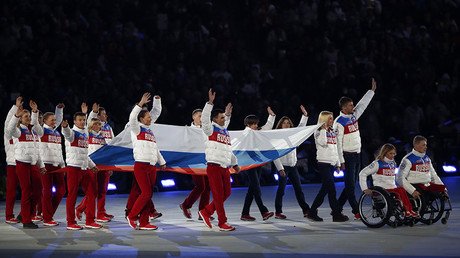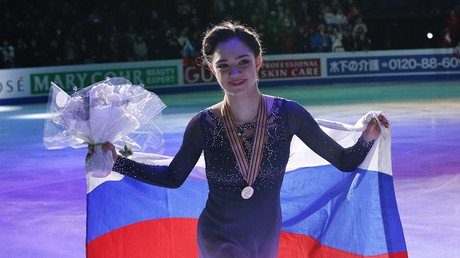‘IOC is now politicized’, three-time Olympic champion Buvaisar Saitiev
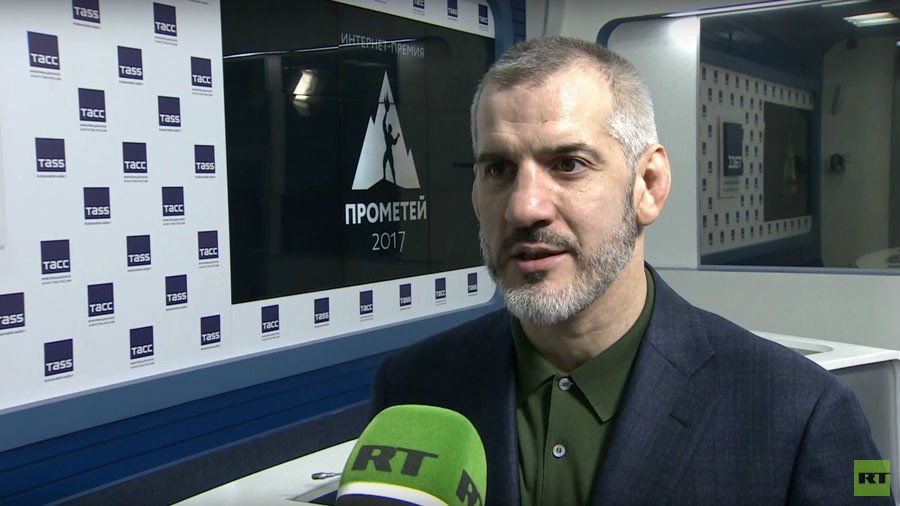
Outstanding Russian wrestler and a State Duma deputy, Buvaisar Saitiev, winner of three Olympic gold medals, spoke exclusively to RT Sport about the International Olympic Committee’s (IOC) sanctions against Russia.
The 42-year-old athlete, widely considered one of the greatest freestyle wrestlers of all time, and winner of Olympic tournaments in 1996, 2004 and 2008, says that the IOC has damaged the Olympic movement with its recent decision to ban Russia from the Winter Games in North Korea, and explains why a proposed Olympic boycott could “destroy” Russian sport.
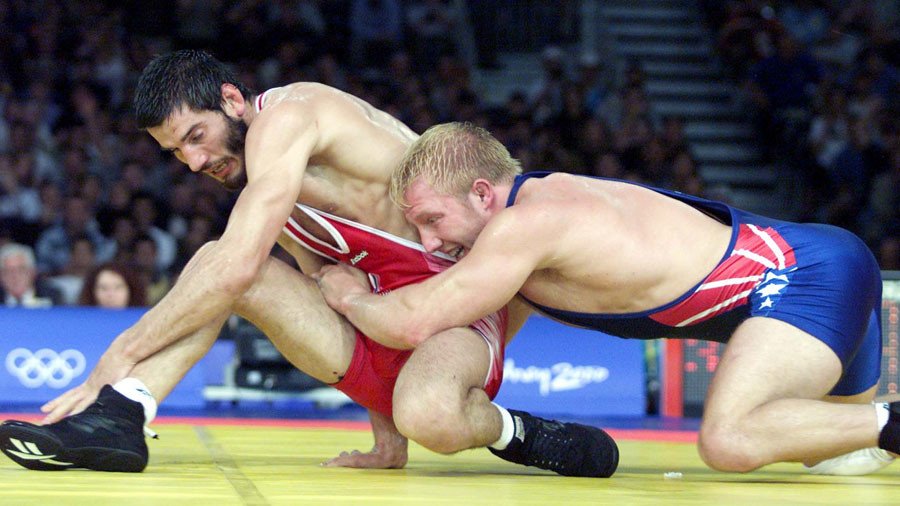
RT: What is your take on the situation with the Russian Olympic team having to participate under a neutral flag at the 2018 Winter Olympics?
Buvaisar Saitiev: This is a catastrophe for the potential Olympic contenders (from Russia), for the athletes who have planned to take part in the Olympic Games. This will be a huge loss for Russia if they don’t compete at the Winter Games. Our country devotes enormous amounts of financial and intellectual resources in raising Olympians, who later become role models for the younger generation and attract children to sport. Every kid who starts doing sports dreams of becoming an Olympic champion. Olympic winners are the brightest successors of Olympic traditions who are setting an example of patriotism and devotion. They are working hard to represent the country at the highest level. That’s why I am disappointed to hear the words of some people, with no background in sports, who have [described as] ‘traitors’ those intending to compete in PyeongChang under a neutral flag. However, President Putin outlined that it’s a matter of the athlete’s individual choice, whether to perform in South Korea or not. Following the Soviet boycott of the 1984 Olympics, the IOC implemented a rule, [by] which a boycotting side halts its cooperation with the IOC for ten years, meaning that the country will have to skip two more Olympic cycles. If we are excluded from the Olympic movement for ten years, we will destroy many sports (in Russia). There are ‘non-profitable’ sports, including my sport, freestyle wrestling, that exist only because they are the part of the Olympic Games. [It is] only after successful performance at the Olympics that athletes representing those sports can gain some financial rewards, receive prizes and receive some benefits. That’s why Olympic Games are very important for [amateur] sports. I think all those actions and decisions [against Russia] were made in an attempt to induce Russia to boycott the Games.
RT: Do you think that the Russian side also shares responsibility in this situation with the ban?
BS: All sides involved in a conflict can partly share the blame. I cannot figure out the exact extent of the Russian side’s guilt, but I would agree that Russian officials didn’t apply maximum efforts to solve the issue. However, I want to emphasize that the Russian Sports Ministry and the Russian Olympic Committee are working hard to improve the situation. I want to believe that the situation will be turned into advantage for our country, and for our athletes. Thinking objectively, I can agree that part of the guilt lies on the Russian side.
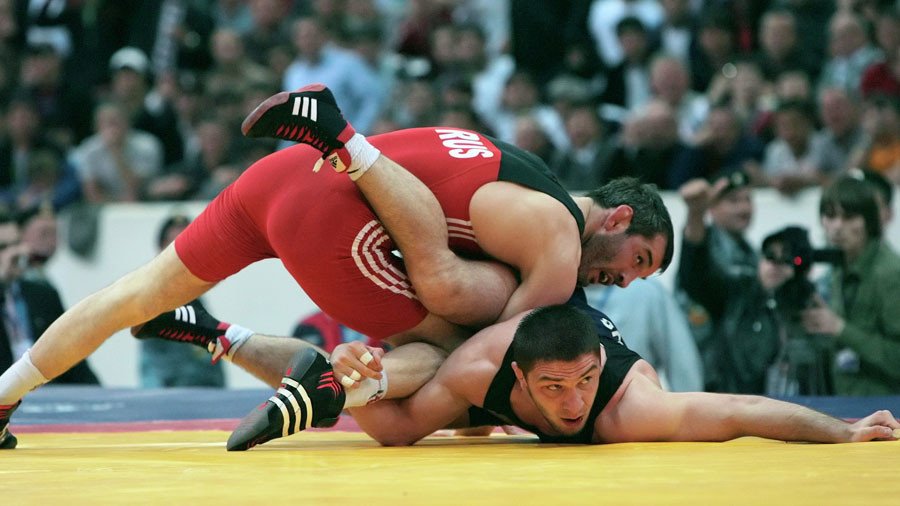
RT: What’s your take on the calls that were made in Russia to reform the IOC or to get rid of the Olympic Games as such?
BS: This is a complex question, which needs to be treated very seriously before taking any actions. I would assume that there is a possibility of reforming the Olympic movement, but I would not dare to say there is a need to get rid of the Olympic Games, as such. I think that the IOC’s organizational institute could be reorganized, but fundamental Olympic principles, which unite people, should remain unaffected.
RT: What effect do you think this ban on the Russian team will have on the Olympic movement in general?
BS: Over the last years, the IOC has made a lot of mistakes which have seriously affected the Olympic movement. I do regret that the IOC has become politicized, although, it is a non-political and non-governmental organization. It should unite people who love sport, and develop sport. It is a huge disadvantage if a country misses the Olympics, but an absence of the Russian team will damage the Olympics in terms of records-setting, events attendance and TV ratings. I think the IOC realizes that Russia’s non-participation in the Games will inflict a blow to the Olympic movement in general.
by Denis Geyko for RT Sport


